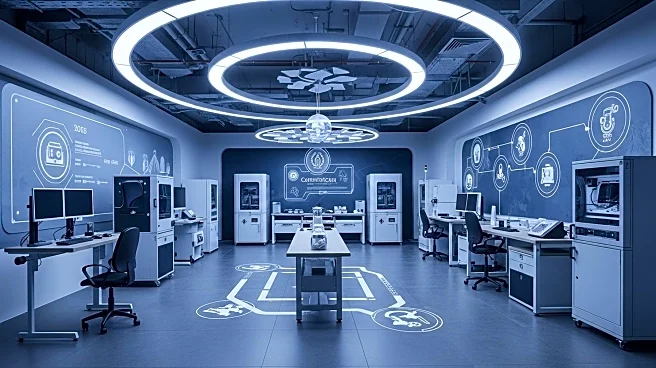What's Happening?
Williamsburg Technical College in Kingstree, South Carolina, is expanding its library to include a new workforce training center. This initiative is supported by a grant of over $56,000 from Power:Ed, a private non-profit lender associated with the South Carolina Student Loan. The center aims to enhance workforce development by offering innovative lab spaces and expanding the College and Career Navigator program. The training center will provide resources such as 3D printing devices, virtual reality tools for simulations in welding, nursing, and CPR, robotics for coding and design, and commercial-grade vinyl cutters. The program is designed to prepare more than 400 students for career readiness over the next year, offering three-week-long classes for groups of around 15 students. Community members are also invited to participate in the sessions.
Why It's Important?
The establishment of the workforce training center at Williamsburg Technical College is significant for several reasons. It addresses the need for skilled labor in rural and underserved communities, providing first-generation students with access to advanced technology and training. By equipping students with general technology certifications, the program enhances their employability and potential for higher-paying jobs. This initiative not only supports individual career growth but also contributes to the local economy by preparing a workforce that can meet the demands of job markets in nearby areas such as Florence and Georgetown County. The involvement of Power:Ed highlights the importance of philanthropic support in educational advancements, particularly in regions that may lack resources.
What's Next?
The workforce training center is set to begin operations, with students and community members encouraged to apply for participation through the college's website. As the program progresses, it is expected to foster stronger ties between the college and local industries, potentially leading to partnerships that further enhance job opportunities for graduates. The success of this initiative could serve as a model for other educational institutions seeking to bridge the gap between academic learning and practical workforce skills, particularly in rural areas.
Beyond the Headlines
The introduction of advanced technology in educational settings, such as virtual reality and robotics, represents a shift towards more interactive and practical learning experiences. This approach not only prepares students for specific careers but also encourages innovation and adaptability, skills that are increasingly valuable in a rapidly changing job market. The program's focus on underserved populations underscores the importance of inclusivity in education, ensuring that all students have the opportunity to succeed regardless of their background.









